To love yourself unconditionally is a seriously misunderstood concept. Before learning how to make it happen, you first need to understand what it doesn’t mean.
It is NOT thinking that you’re perfect, absolutely wonderful, and should always be adored. It doesn’t involve accepting everything you think, feel, or do as okay. It doesn’t mean ignoring or being in denial about your flaws.
Not to sound simplistic, but all it means is to avoid putting pre-conditions or limits on loving, valuing, and accepting yourself. Don’t tell yourself, “I will love myself when I’m thin, smart, rich, married, a success, or a winner.”
Don’t decide that you’ll love yourself unconditionally tomorrow. But that you’ll do it right now, this minute.
Why you should love yourself unconditionally
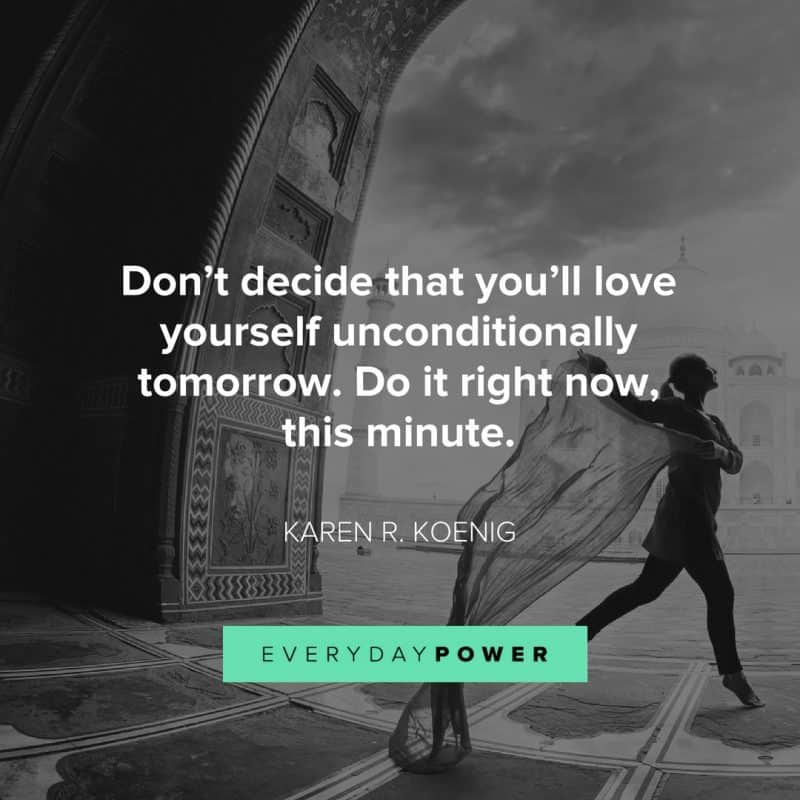
Conditional and unconditional love has necessary evolutionary functions. Because infants and children are not always likeable, the love we feel for them must be unconditional so that we’ll care for them and keep the species from dying out.
Humans wouldn’t have survived very long if we stopped loving children because they did upsetting things.
Of course, we cannot go on loving children unconditionally as they grow into adults without also shaping them in such a way that they can function well in society. Humane qualities need to be reinforced, while inhumane behaviors extinguished.
It’s tricky business continuing to love children unconditionally, while also managing to transform their inappropriate behaviors into appropriate ones. We need to show a kind of love that will help them see themselves in this same way.
Love yourself unconditionally: What is self-love?
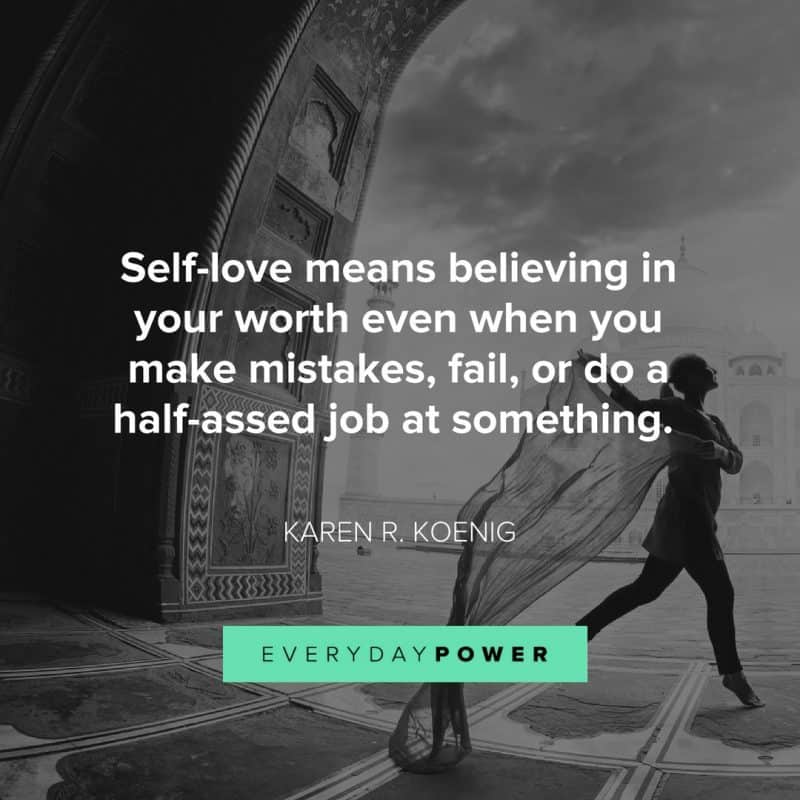
Having self-love involves having warm, positive, worthwhile, caring feelings toward yourself. It’s about valuing your specialness, NOT because you’re superior to other people, but because there never will be another person quite like you on the planet.
Your uniqueness comes from your being to make you a one-of-a-kind item. Self-love means believing in your worth even when you make mistakes, fail, or do a half-assed job at something.
As a psychotherapist, I’ve noticed over the decades how difficult it is for clients to wrap their minds around this concept.
Most people feel that in order to be lovable, they must achieve or excel at something. They insist that they can’t love themselves or that others won’t love them, unless (or until) a better version of themselves comes along.
How do you develop unconditional self-love?
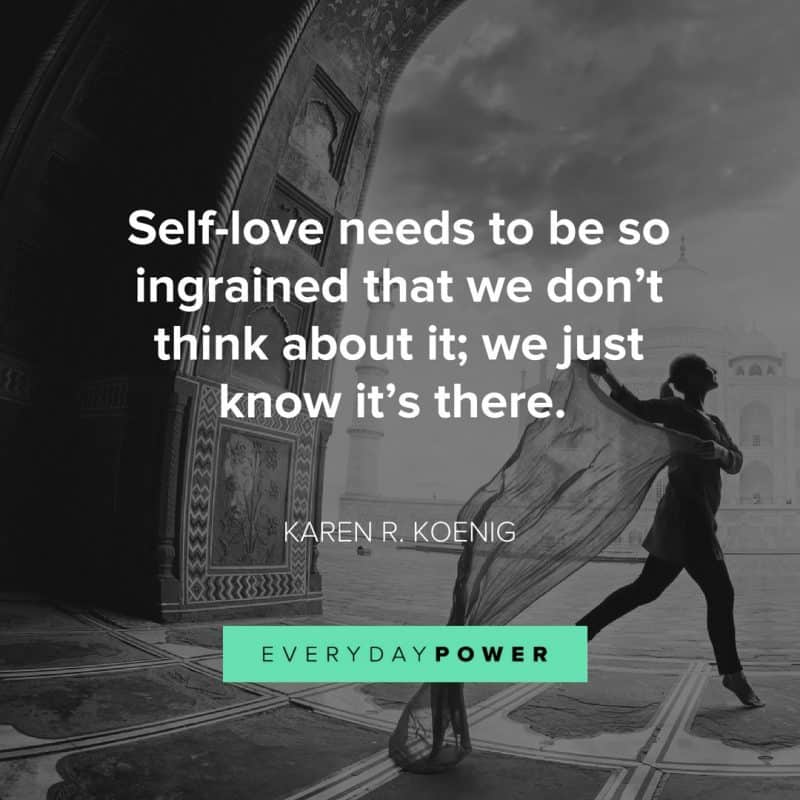
If you grew up being mistreated, neglected, or not well-loved, you may not feel lovable today. If so, you were raised by people who didn’t love themselves enough and couldn’t love you any better than they did. So you’ve come to see yourself through their eyes.
I often test clients’ feelings about themselves by asking: “Do you love yourself?” Those who love themselves usually look at me as if I have two heads. “Of course I do,” they tell me, then roll their eyes.
On the other hand, people who fail at loving themselves generally pause before answering, then utter something like, “Well, I think so,” “I’m trying to,” or “I know I should, but….” Anything but a resounding, ‘yes’.
They fail the test because to be emotionally healthy, self-love needs to be so ingrained that we don’t think about it; we just know it’s there. It’s like breathing. You don’t have to be aware of it to do it. It should be an automatic response that you love yourself unconditionally.
What are ways to develop self-love?
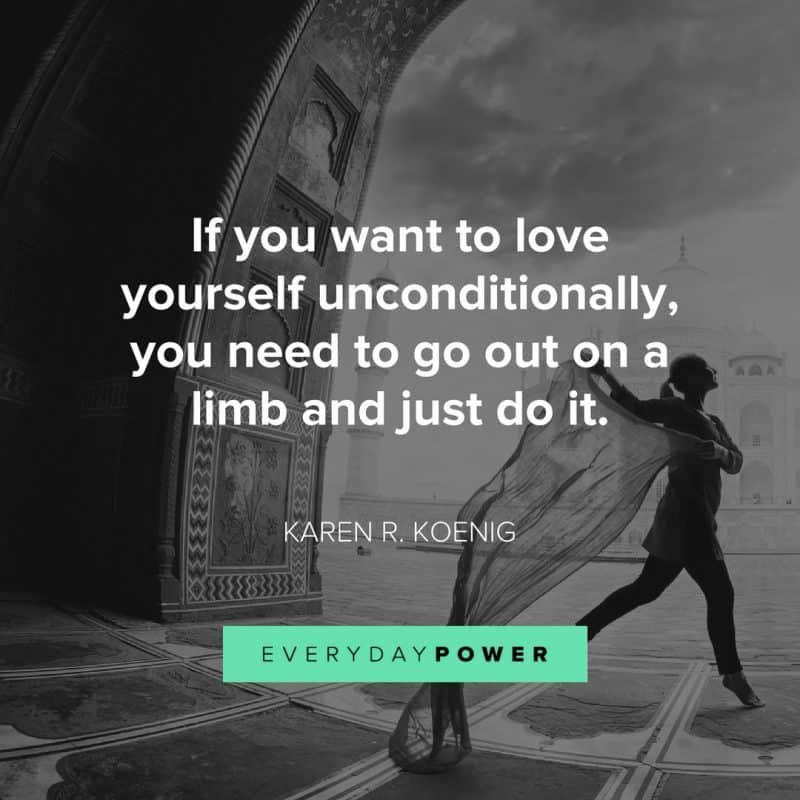
I remember a friend who had affirmations about loving herself plastered all over her bathroom. I mean, a person sitting on the toilet was faced with a shelving unit covered in sayings about self-love.
As a therapist, I thought sadly at how unloving my friend must feel toward herself to need all that inspiration and encouragement.
Of course, this was the decade of affirmations and visualizations as the path to self-enlightenment and self-love. I never for a minute bought this notion (and I still don’t).
We certainly internalized positive feelings as children when our parents treated us well and told us they loved us. But if we missed out on that or we never had the opportunity to adopt self-loving feelings during childhood, we can’t simply assume that hearing or reading that we’re lovable (no matter how often it’s repeated) will make us feel that way now.
In fact, I believe that if you want to love yourself unconditionally, you need to go out on a limb and just do it. I believe self-love is just that: an irrevocable decision. You decide that either you’re going to love yourself or not, that you’re lovable in spite of your flaws.
This can be a difficult concept to grasp. When I presented it to one client, she laughed and said that it would be easier for her to believe that aliens lived among us than that she was lovable.
Another client started to cry when I suggested that loving herself was nothing more than a decision. She insisted that she desperately wished to love herself unconditionally, but never could because she was terrified that she might be wrong to feel that way, and that would hurt too much.
Comparing ourselves to others
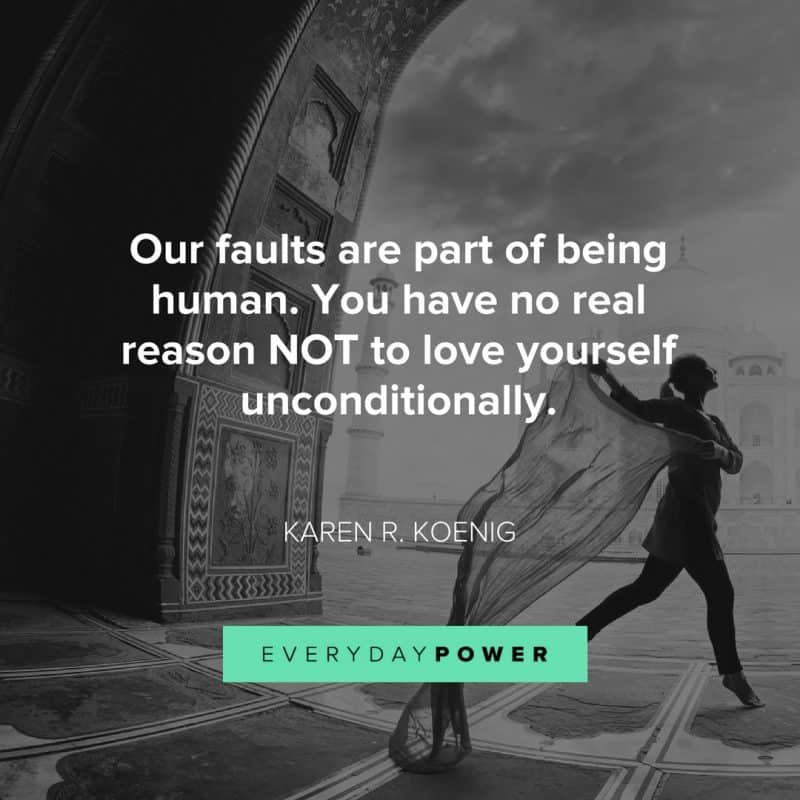
I often ask clients if they think that other people are lovable – and they usually agree. Then I ask if that means that these folks are high achievers and exceptionally wonderful people – they disagree. My next question though, is always the same:
“So does that mean that everyone else in the world is lovable and should possess unconditional self-love except for you?”
“So, 7,299,999,999 people are lovable, but you’re not. All those people can have flaws and still love themselves unconditionally, but not you. Do I have that right?”
This usually swings them around to see my point: That other people behave badly, hurt others, harm themselves, are imperfect, yet still recognize themselves as lovable and worthy of love. Our faults are part of being human. Thus, you have no real reason NOT to love yourself unconditionally.
What works in learning to love yourself unconditionally
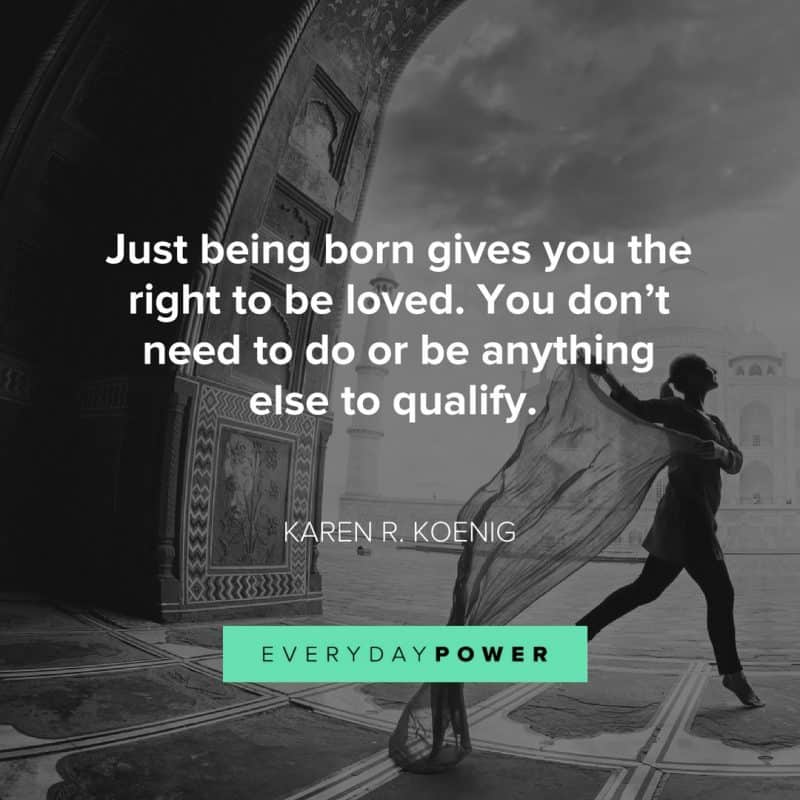
I don’t believe that affirmations or visualizations will teach you how to love yourself unconditionally. Nor is having others tell you repeatedly how lovable you are. They might help some – but they won’t turn the wagon around.
What works is to change YOUR belief that you must be something other than exactly what you are to love yourself. Psychology calls this framing. You get to stay your imperfect self, but love yourself unconditionally anyway.
You can still practice becoming a better person, not in order to love yourself more, but because you simply believe that you would be happier by having fewer faults. Although you know you will never get rid of them all, you do your best because it will make you proud of yourself.
You believe it will improve your chances of success, love, happiness, and having more satisfying, meaningful relationships. That kind of self-regard needs to stay steady whether you improve or not.
Paradoxical? Yes. Impossible? No.
Anyone who’s read my books or blogs knows that I’m a firm believer in the concept of ‘good enough’. Just being born gives you the right to be loved. You don’t need to do or be anything else to qualify.
Take a chance on loving yourself in the same way you’ve taken chances on loving other people who weren’t perfect. What you’ll find is that, when you love yourself unconditionally, you’ll become the improved version of yourself you’ve always wanted to be.
The post How to Love Yourself Unconditionally appeared first on Everyday Power.
No comments:
Post a Comment